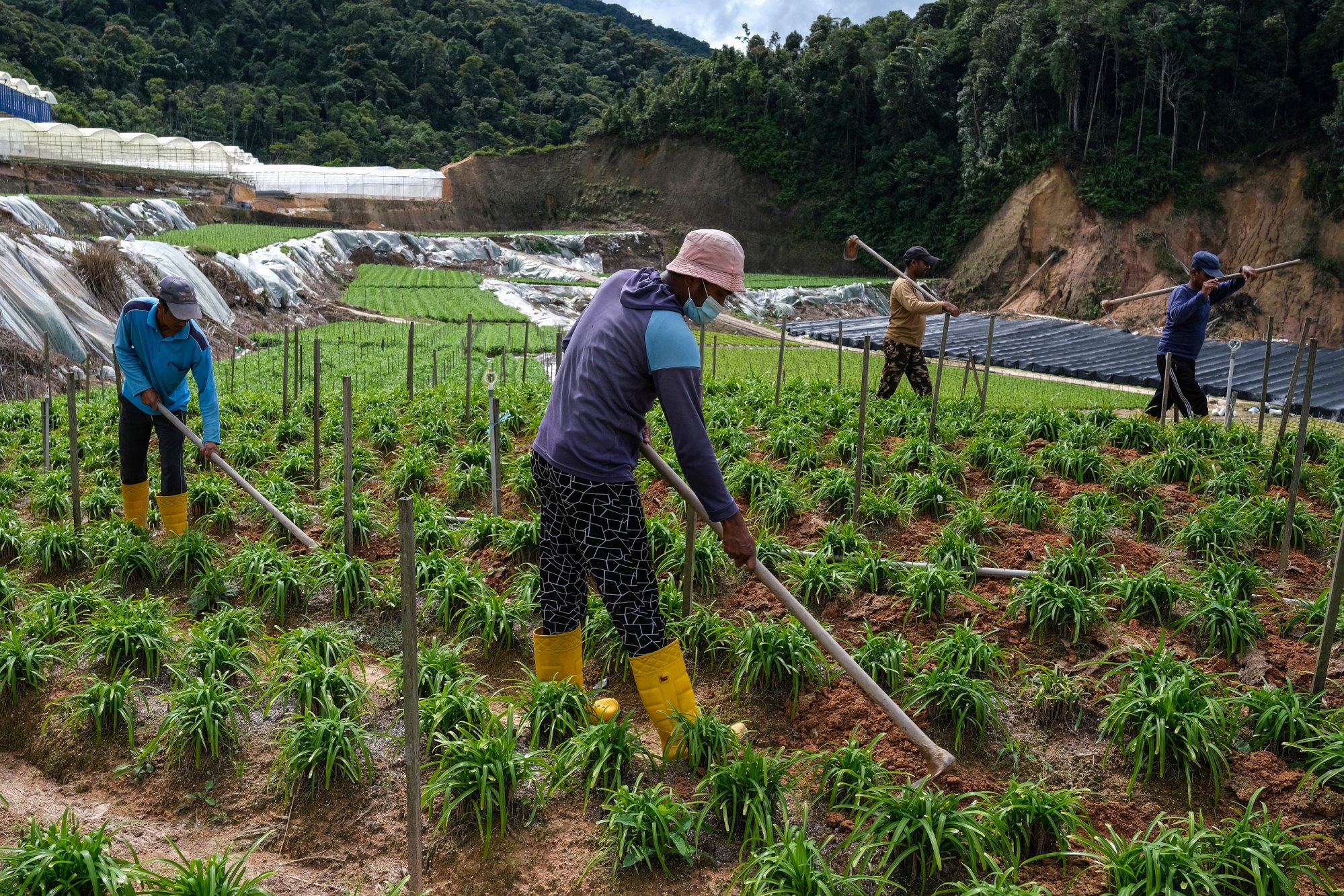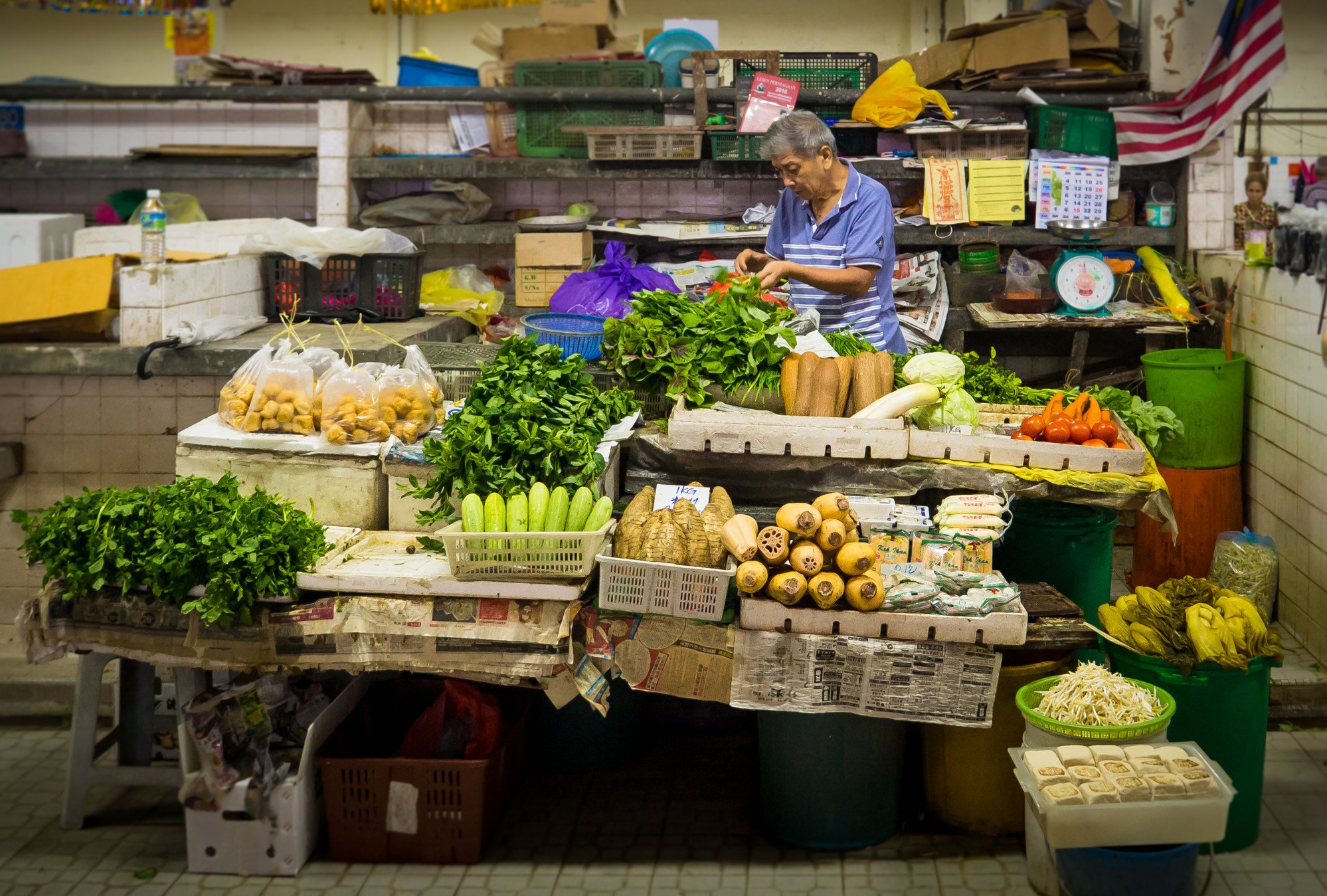“All our farms use foreign workers. Locals don’t want the jobs, and now even foreign workers are picky as most prefer working in factories over the hard work at farms,” said Lim Ser Kwee, the president of the Malaysian Federation of Vegetable Farmers Association, which has 6,000 members.
Lim, who also runs a farm in southern Johor state, said around one-fifth of the estimated 40,000 foreign workers hired by the federation’s members had been expected to return to their home countries during the Ramadan fasting month to beat the Eid rush.
That could drag output down by 40 per cent at their next harvest cycle next month, he said, adding that workers often took months to return to their jobs.
This means households and restaurants may have to pay more for leafy greens such as spinach and bok choy, which are mainly produced locally due to their short shelf life.

Lim said farms in the hilly enclave of Cameron Highlands – the largest vegetable-producing region in the peninsula – typically send down between 500 tonnes and 600 tonnes of fresh vegetables daily.
Fewer hands mean the farms may not be able to harvest everything in time, and potential wastage, as vegetables that don’t meet market standards end up on the scrap heap, he said.
While the Ramadan exodus is an annual affair, the government’s move to cap foreign labour hiring by May 31 will coincide with the lowest point of employment across the year.
Grocers reject the likely looming passing of farm gate costs up the supply chain, saying the Ramadan worker shortage is no surprise.
“We all know people will go back [home] at this time of year and in anticipation of this, farmers have to do their own planning, just like in retail we do our own planning,” said Ameer Ali Mydin, the managing director of local hypermarket chain Mydin.
“I sympathise with the farmers who have to deal with floods and bad weather which are not within their control … but this is not the right excuse to use to increase prices.”
Malaysia to slash migrant workforce amid vitriol, Bangladeshi job scam crisis
Malaysia to slash migrant workforce amid vitriol, Bangladeshi job scam crisis
Earlier this month, the government announced a cap on new migrant worker intake to 2.55 million people, with a deadline of May 31 set as the last day for employers to bring in new workers into the country.
Immigration department records count 2.13 million migrant workers currently actively employed in the country. This leaves a remaining quota of 412,011 jobs for migrant workers that the government expects will be filled out by the deadline.

Food imports cost the country 78.8 billion ringgit (US$16.6 billion) in 2023, nearly double its exports valued at 46.5 billion ringgit over the same period, according to a March 18 report on the country’s food security by Bank Muamalat.
Experts pin the persistent weakness in Malaysia’s fiat currency as a key reason why food inflation has spiked, even as headline inflation settled at 1.5 per cent in January, one of the lowest rates in the region.
